Eric is a rogue philosopher, professional web developer, and ninja (in that order). He is a father of three, husband of one, and a poet unto himself.
A Polemic on Philosophy
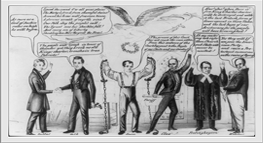
Certainly there are some among you who gladly look upon this proposition and extrapolate all of the reasons for why one cannot be a Christian while at the same time denying truth. You will no doubt announce “ah, ha!” and move forward with your indictment of the soul, which surely fills books and books. Then there are others who will carefully dissect the proposition and show its absurdity through its apparent contradiction. First you note the proposition is self-referentially false and thereby demonstrating the fallacious premise from which the proposition is based. Next, you argue that you cannot make a positive case for a claim by denying the claim itself. Therefore, you feel justified in believing that such a claim is so absurdly contradictory that it cannot possibly be true.
However, are you not the same individuals who claim that Christ is Truth; and that for one to obtain the title “Christian” or “born again” one must be “in Christ”? No doubt, you are silently maintaining that it is not you, but Christ who proclaims these axioms. Fair enough! Then do you not also claim (or you and your Christ) that in order for one to be a “Christian” they must deny the hedonistic pleasures of this life for the next? No doubt your argument is sound “you cannot be a Christian and be of the world”. And you will go on about your way not thinking another moment about worldly things. This is of course despite the fact that it is that very world that needs you most; the very place in which you were created and have been called. But, somehow you are able to separate yourself from it and yet remain convincing to those in it that you somehow care about them. No! You care only for your treasures!
Now for the individual who so rightly pointed out the absurdity of my claim I have no indictment. For how can the guilty indict the innocent? And there is no doubt that I am completely guilty! Therefore, instead of indicting you I will celebrate that we both believe the proposition to be true and therefore we hold to an absurd faith. That Christ is absurd and has contradicted himself – so rejoice with me that Christ’s Truth in untruth as prevailed over logic. My dear listener, rejoice with me that you too believe that for an individual to be a Christian they must be in the truth of Christ. That by denying the very self-produced from the world is nevertheless the same self that must subsist in Christ’s truth. Therefore, you cannot deny who you are, because to do so is to deny Christ himself in whom we were created to resemble. Finally, let it be said, that in order to come to Truth one must be willing to leap into the absurdity of untruth where Christ sits upon the glory of his throne.
Let us be reminded of the famous conversation between pilot and Jesus on the horrific day our Lord lost his life. “?What is truth?” pilot asked. And yes, there are those among us who ask the same question. It is one thing to consider the proposition in all of its ontological significance. However, it is quite clear that there are those who look truth straight in the eyes and yet remain completely resigned, in order that doubt might prevail. Like pilot there are those who, when confronted with truth, remain resigned to its existence, despite the fact they are looking straight at it. These people will never find truth because they are blinded by their presupposition of its nonexistence.
In our own day this is precisely the problem; namely, neo-Hegelianism and its premise that one must begin in doubt in order to rummage through the baggage of, ironically, presuppositions. Is it not utterly irrational to think this way? Let us put it another way: if one begins with the presupposition that metaphysics cannot possibly be knowable (and we will say for the sake of arguing this is because language has no ability to meaningfully speak about it) then if something metaphysical were to be made known or describable would not the one who is in complete resignation never see what was blatantly obvious to others? Worse still is the fact that these same individuals who demand that truth reveal itself. They walk around covering their eyes shouting “I can’t see you? Where have you gone?” Open your eyes; for it stands right in front of you! It even pursues you despite your blind mind, which you arrogantly cloak in intellectualism.
Intellectualism is not the problem, it is those who claim to have it; it is those who hide behind it like scared little children who are afraid of the dark. It is these individuals, the neo-Hegelians, who have defamed “idea” for the sake of truth that exists only in the world they created. There exists a sort of double-speak with these individuals who on the one hand create truth and on the other claim its ontological. In fact, just the opposite has happened: they have sucked the morrow out of truth and therefore, the famous dictum misspoken many years ago has been made clear: God is not dead, truth is. There are many neo-Hegelians in the world, which is not limited to the secular disciplines, but also the religious. This is an even greater abomination because those who have been given the truth have known better than to use it as they do. Those who were given the job of protecting the sacred truth have fallen asleep and it has been stolen. They have compromised their iKONIC status for an idol – the idol of truth. Their fanaticism has made people hate the church – and I am among them. For too long the church has equivocated on truth and thus Christ. It is unfortunate that those who hate the church also hate God, even though God is not the church and has certainly given up on it years ago. Again the famous dictum is made clear: God is not dead – the church is.


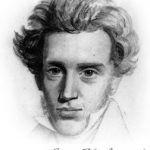
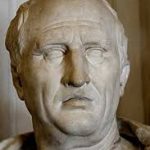





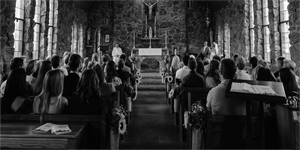

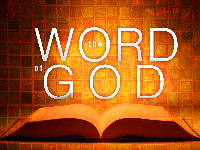



Recent Comments